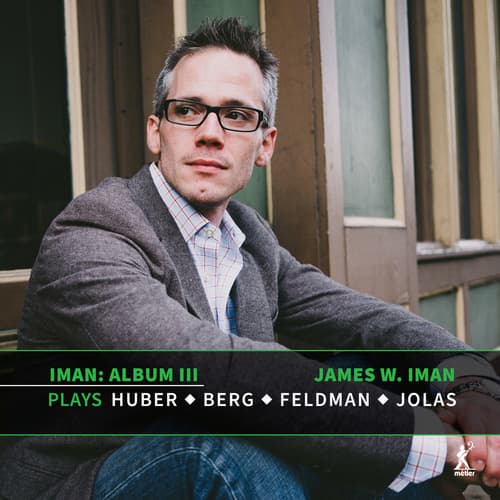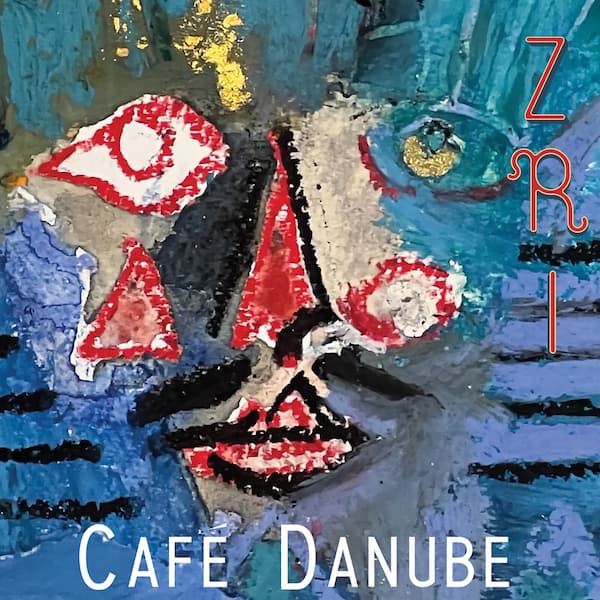Statelessness and the plight of refugees are still very much here with us. A new album with a work that is based “on the universal experience of refugees being exiled from their homeland” was released on March 3, 2023, on the Lyrita label. The world premiere recording of In Exile, Jonathan Dove’s Cello Concerto, is scored for baritone, solo cello, and orchestra with performers Raphael Wallfisch, cello, Sir Simon Keenlyside baritone, the City of Birmingham Symphony Orchestra, and conducted by Gergely Madaras.
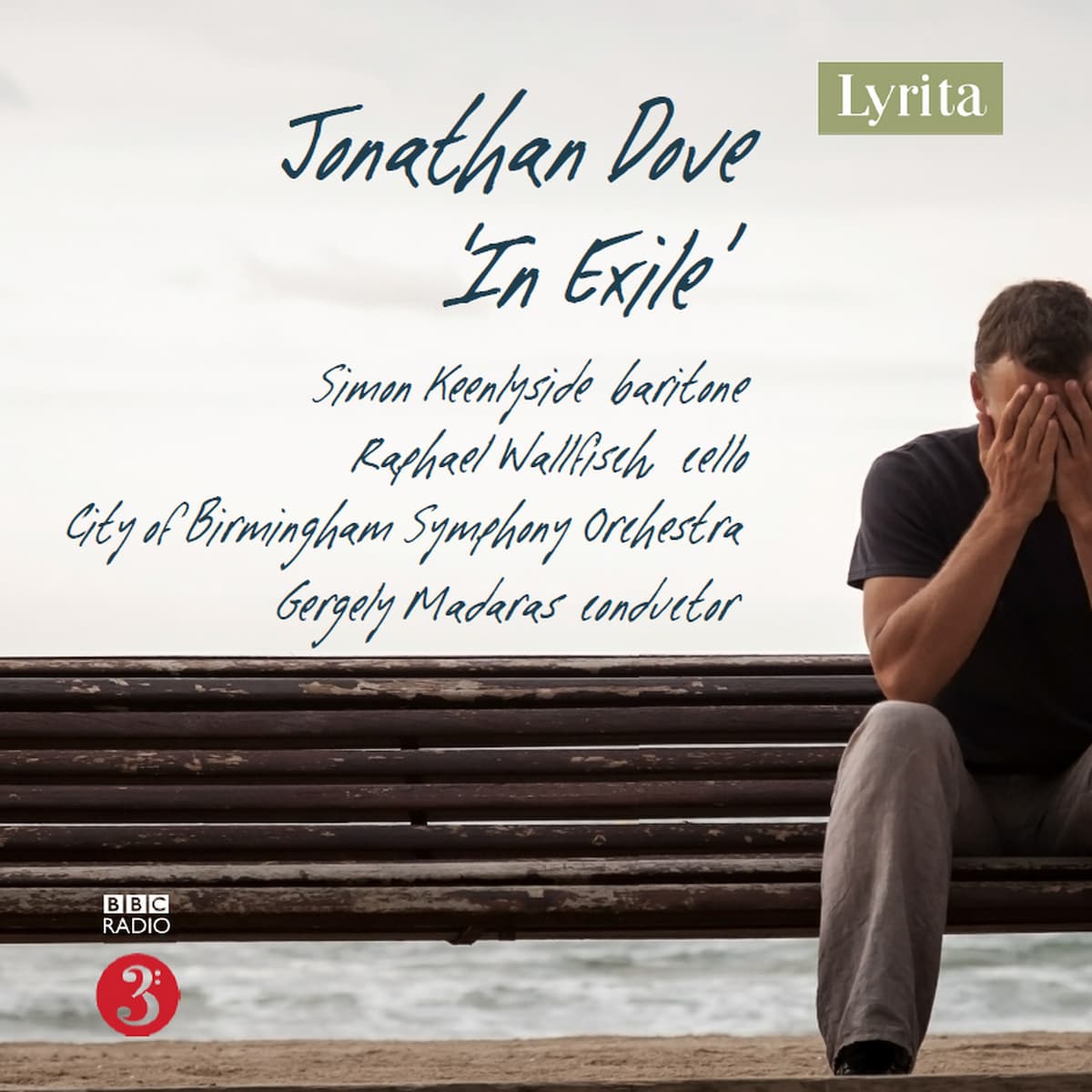
Jonathan Dove: In Exile © Lyrita
A work of eleven movements, the libretto, by Alasdair Middleton, contains the text from a 10th Century manuscript entitled The Wayfarer, by an anonymous English author as well as lines from Shakespeare, Dante, Gibran, and others.
Born in 1959, Jonathan Dove is heavily influenced by his experience with opera and his long association as a staff member with the opera company and festival Glyndebourne. They commissioned his first opera. Dove went on to compose more than twenty additional operas and other works for voice including an oratorio. His Song of Joys for chorus and orchestra was performed at the Last Night of the Proms in 2010. Dove also wrote for small ensembles including the intriguing piece Pied Piper for clarinet, piano, and spoken voice.
Jonathan Dove: The Pied Piper – I. Opening (Emma Johnson, narrator/clarinet; John Lenehan, piano)
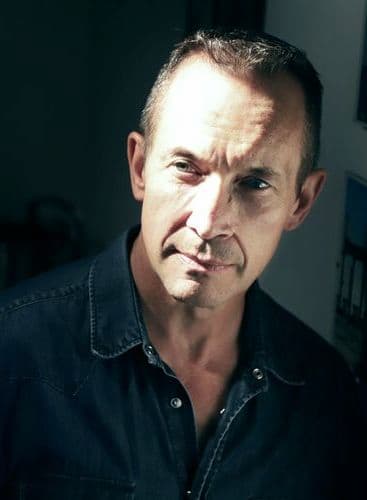
Jonathan Dove © Marshall Light Studio
Dove, when he was composer in residence at the famed Banff Arts Centre School and Festival, in Alberta, Canada, encountered the cellist Raphael Wallfisch and it was there that they began envisioning a cello concerto. The Wallfisch family has an intriguing and important history that the composer thought would be ideal to depict the universal dilemma of displacement, exile, and statelessness of refugees.
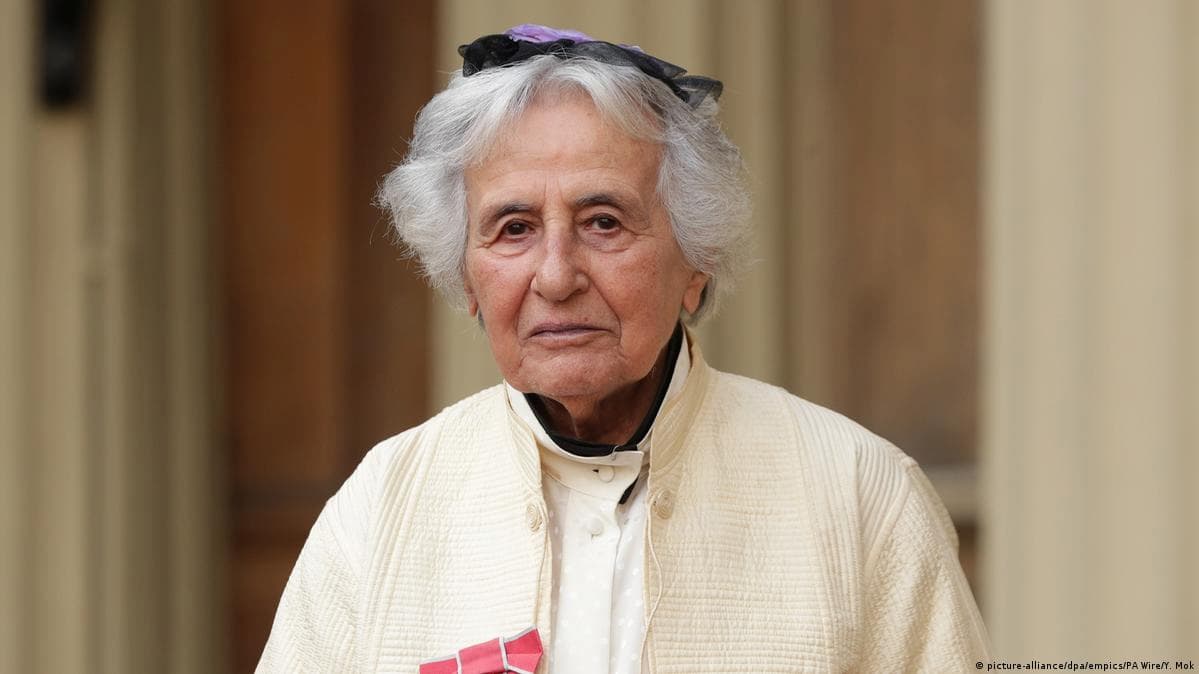
Anita Lasker-Wallfisch
Wallfisch’s parents were among these refugees. His father had to flee Europe, and with his mother and brother, he escaped Breslau in 1937 landing in Palestine. Wallfisch’s mother, Anita Lasker-Wallfisch, a well-known Auschwitz concentration camp survivor and spokesperson, asserts that her survival was due to her cello-playing. She was saved from perishing in the gas chambers due to her activities in the Auschwitz women’s orchestra. In Exile completed in 2020 and commissioned by the City of Birmingham Symphony Orchestra, is dedicated to Anita Lasker-Wallfisch. The premiere took place in Bucharest and in the UK, in 2021, with the same soloists.
The composer comments that the piece “moves through a day in the life of an involuntary exile: waking alone in a foreign land; remembering the homeland. The Exile feels the pain of being so far away in his country’s time of need, unable to help his own people. He remembers all the names he has been called in this strange land. He thinks of all he has lost and longs for home.”
Jonathan Dove: In Exile – Cello alone I
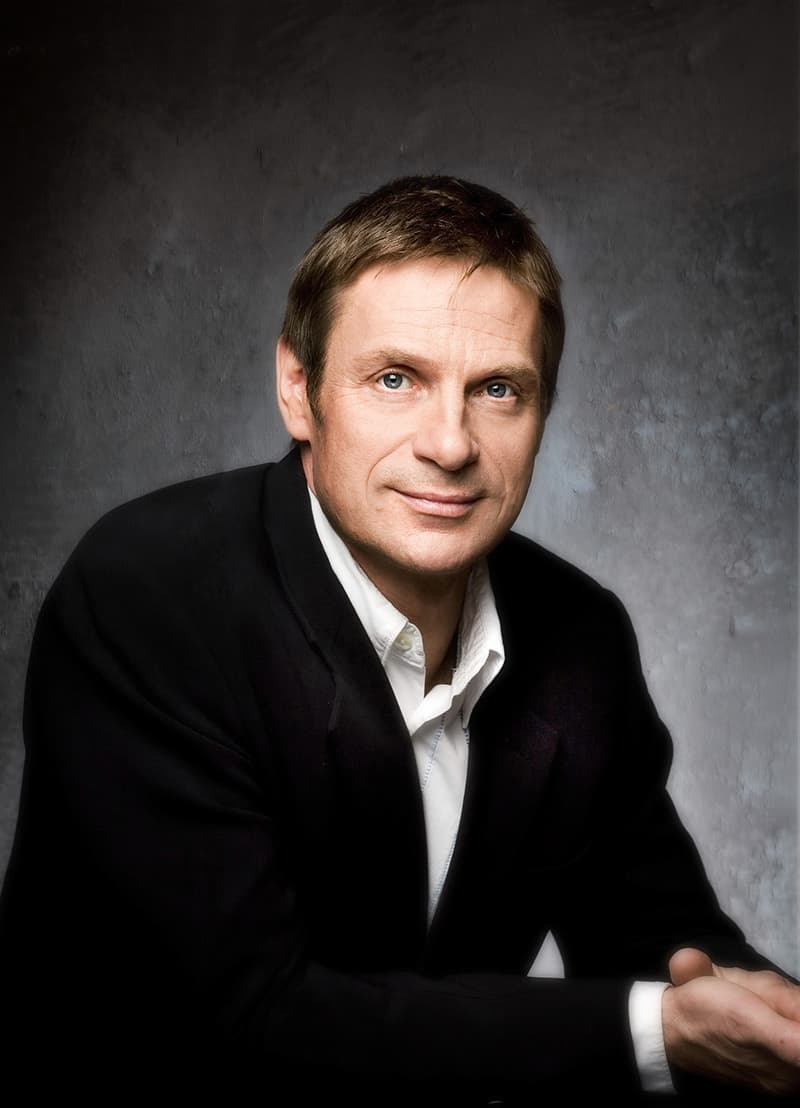
Sir Simon Keenlyside © Uwe Arens
The piece is played attacca or continuously and begins with the lowest notes of the cello, Cello Alone I, with mysteriousness and foreboding. The cello moves upward chromatically, gradually becoming increasingly appassionato, until the cello plays in the extreme upper extremity of the instrument. Wallfisch plays with an urgent ache. Then with, ‘Daybreak Again’ the baritone enters “to open the doors of my heart…cut off from my country…” His resignation is punctuated by poignant slides in the cello and high-held notes in the woodwinds.
The harp leads section three, “The first arrow the bow of exile will shoot” after dramatic chords in the orchestra and features the two soloists alone. The orchestration of this section reminds me of the sweeping work by Ernest Bloch Schelomo Rhapsodie Hébraïque. “The tasted of the ash on your tongue…”
Jonathan Dove: In Exile – See, cold Island, we stand

Gergely Madaras © Benjamin Ealovega
A flowing and undulating pace in the full orchestra is a contrast in movement four. A dramatic and agitated cello cadenza interrupts. The orchestration here is written with interesting flourishes, and abrupt punctuation from the bells, and as it moves to the next movement the baritone sings with depth and aplomb, The two soloists merge as one merging their sorrow “I left that land wretched,” climaxing in, “but we are exiles…”
Jonathan Dove: In Exile – Cello alone II
The cello takes over, Cello Alone II in a heart-rending solo, which Wallfisch plays with aching tenderness and affecting sorrow, sometimes in the deepest register, sometimes with shimmering highest notes. This movement is very powerful.
Percussive gunshot-like effects create a frenetic atmosphere, the soloists displaying agitation, and when the brass enter their menacing crescendo offbeats serve to unsettle the listener while the cello plays higher and wild lines. Another propulsive Cello Alone III movement follows.
In 9, ‘Unclean’ the percussion again interjects with short, formidable chords, like slaps, while the baritone laments, “Undomesticated…unnamed; Unspeakable; unthinkable; untouchable!” The writing here is especially effective and ominous.
Suddenly slower, resigned, and measured, movement ten is full of agony and the singing in this movement remains remarkable. “The world is a wilderness…”
Jonathan Dove: In Exile – My grief on the sea
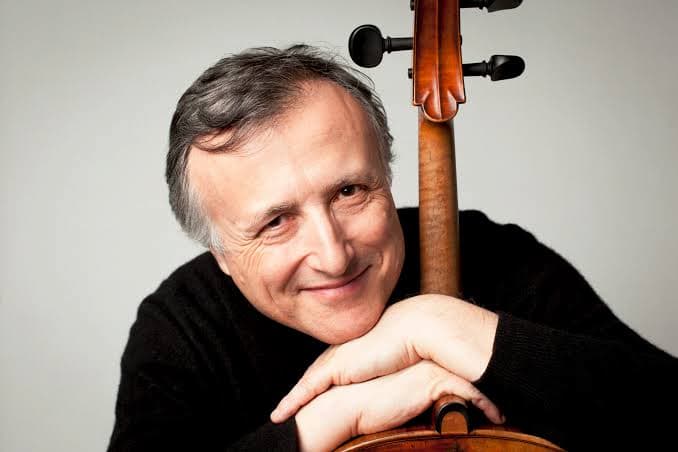
Raphael Wallfisch
The cello returns in movement eleven, the finale, “My Grief on the Sea” suspended in sorrowfulness and accompanied by the orchestral cellos. The sensuous sound conveys the utmost tenderness and despair. In this final movement, Wallfisch brings a wonderfully poignant sound and vibrato to this section. Hesitantly the protagonists fade away gently disappearing, leaving the subject unresolved and the listeners unsettled.
The final track on the album selection 12 is Night Song, a short piece for cello and piano, with the composer at the piano. This last segment continues in the same questioning and dark vein as the opening to In Exile, but it soon evolves into a tender, romantic and lyrical elegy, the artists playing beautifully. The song fades out and into the spheres, as does In Exile. After all, as a society we have not yet come to terms with expulsion, nor have we solved the refugee crisis.
Wallfisch embodies the anguish of the soul in exile with depth and profundity, and with the stirring baritone Sir Simon Keenlyside, the soloists render the text and the insightful music effortlessly. The result is an intoxicating blend of emotion.
For more of the best in classical music, sign up to our E-Newsletter

